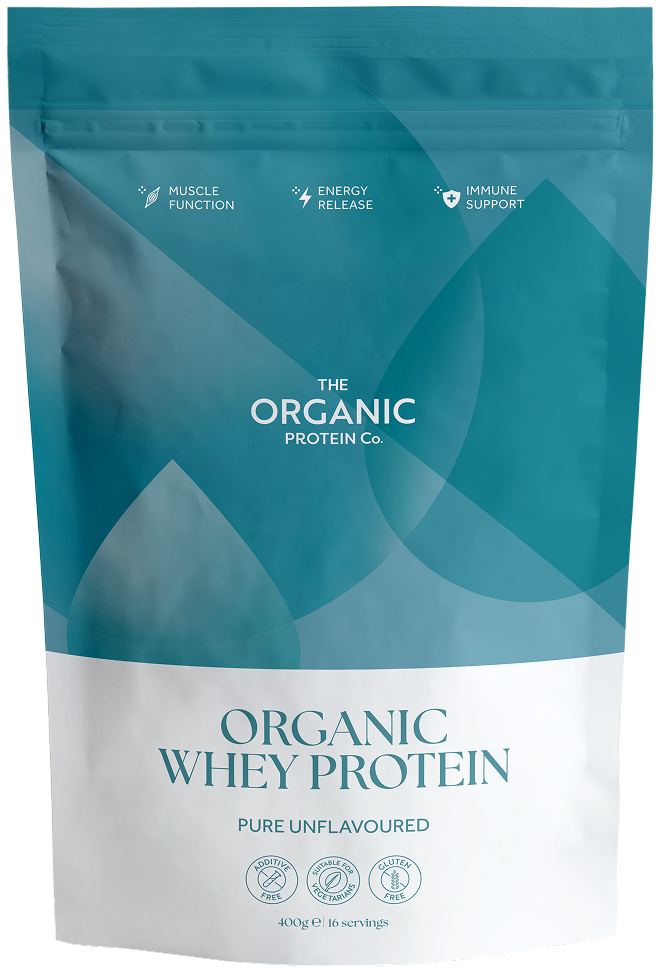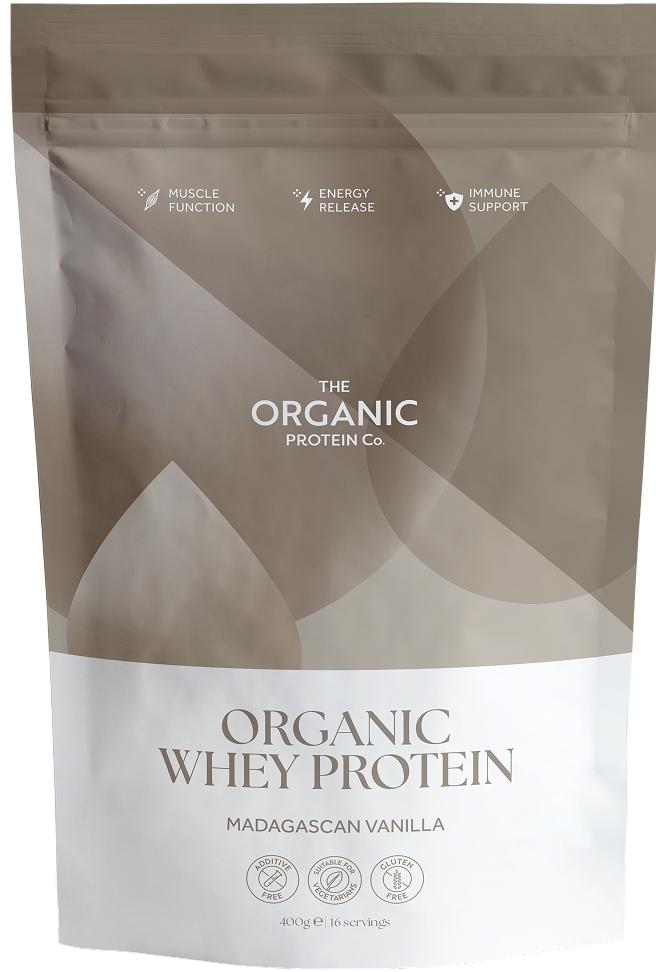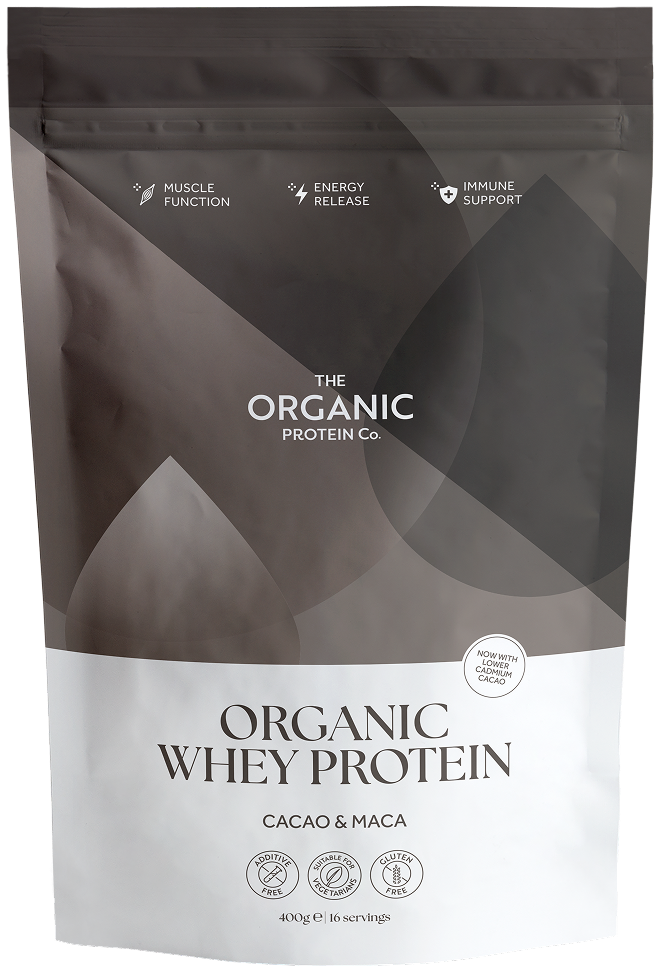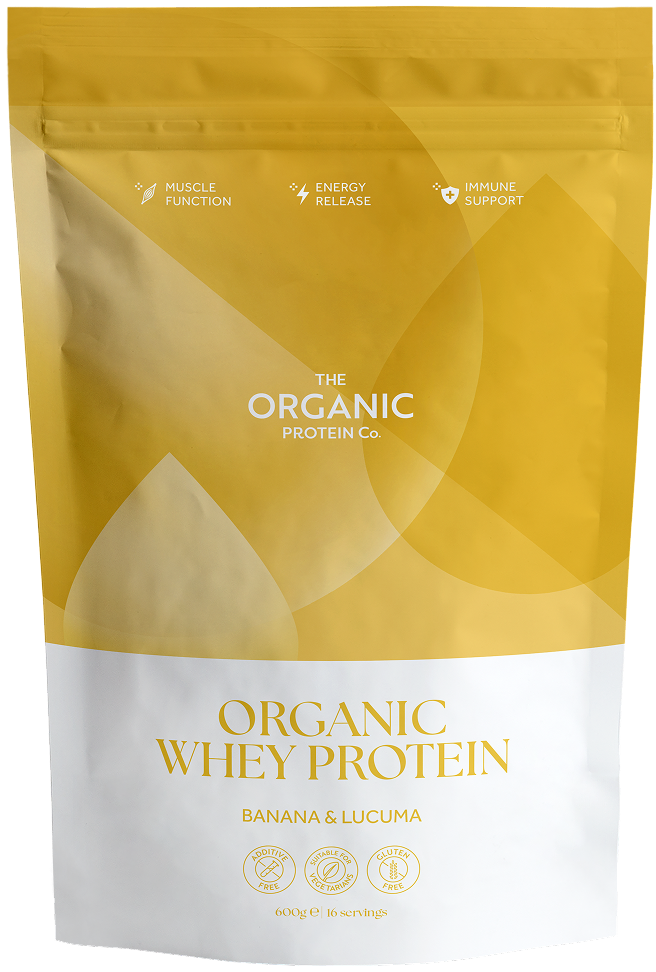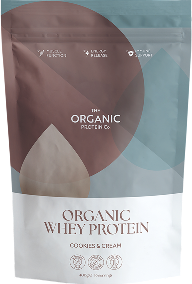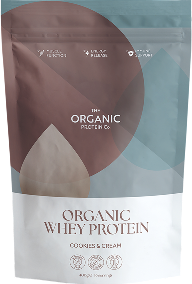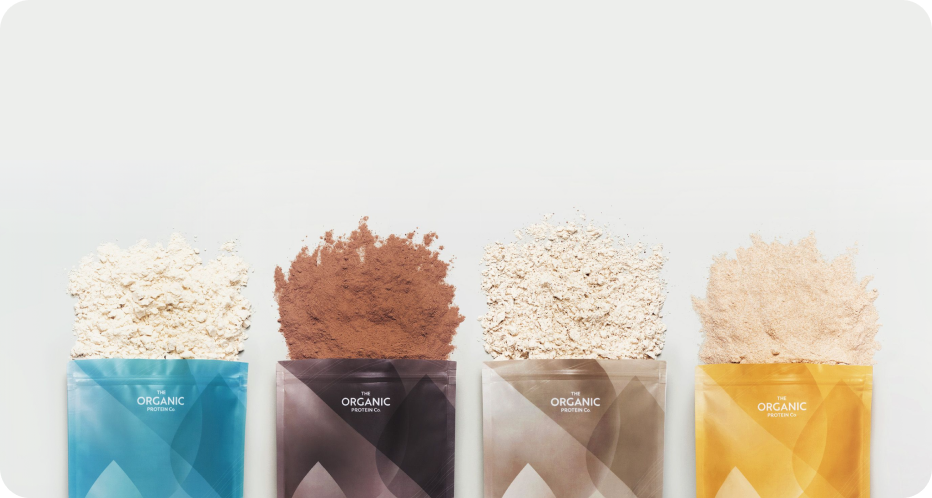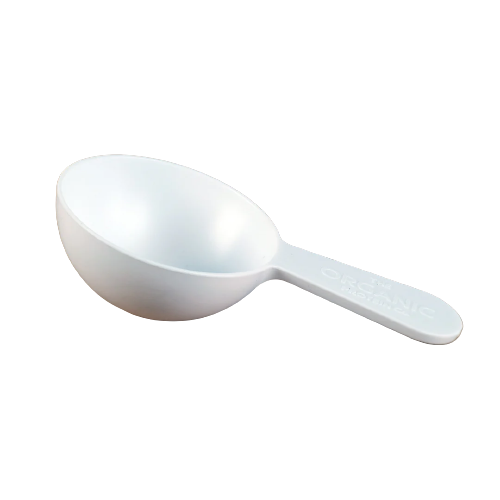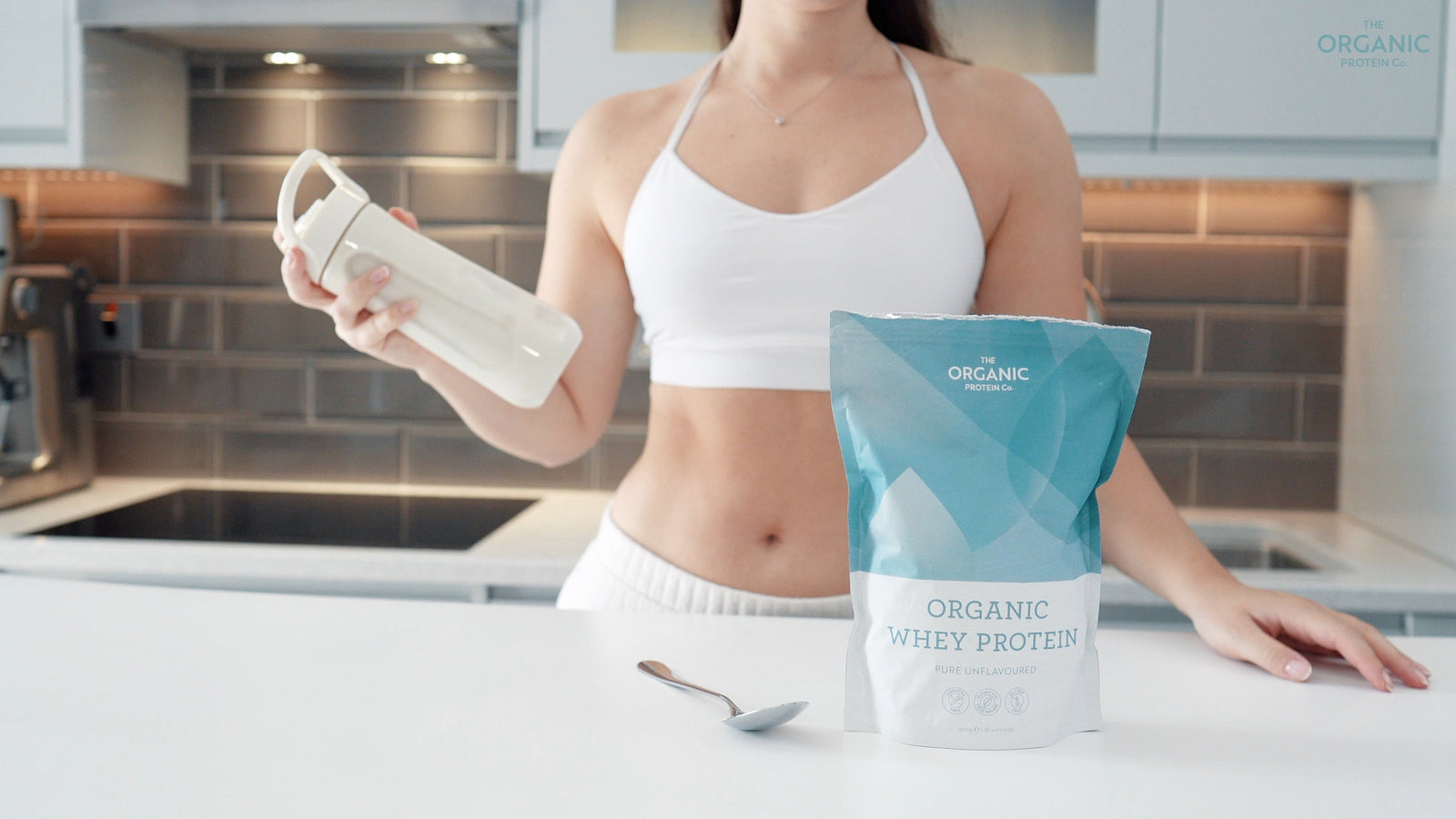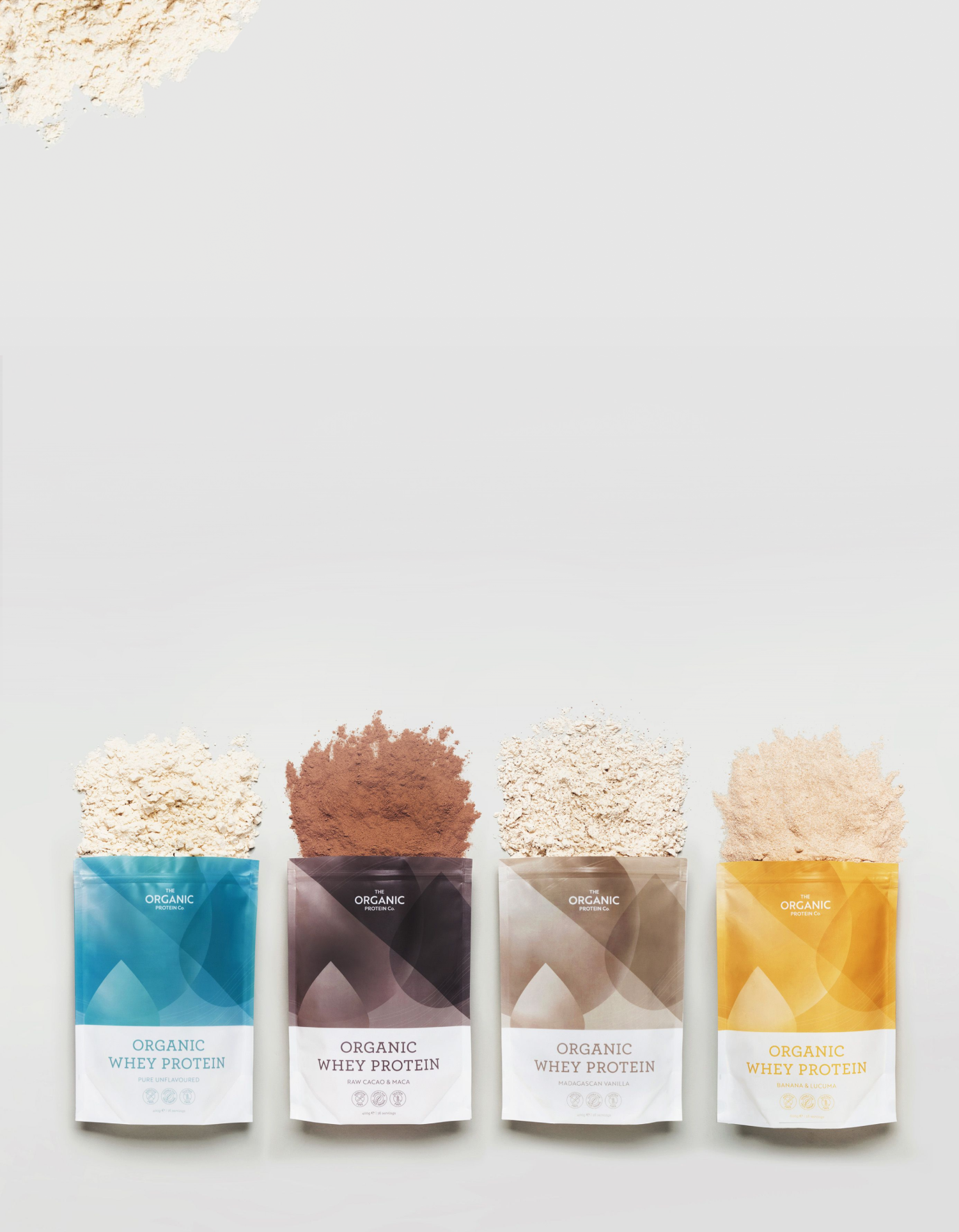Caring for your health and wellbeing is central to getting the most out of life. In fact, in a 2023 wellbeing survey in the UK, self-reported health status was one of the largest contributors to life satisfaction.
Many are turning to protein powders as a convenient way to fuel their daily life, valuing the quick and measurable protein intake they offer. But with so many options on the shelves, how can you tell which is the best protein powder for your overall health and wellbeing?
Our guide below covers some of the factors to look out for when choosing a protein powder to suit your needs, putting you in the best position to make an informed decision for your protein intake.
The role of protein in health & wellness
Self-care looks different for everyone, but a balanced, nutritious diet is a universal part of overall health and wellbeing (1). Maintaining this balance can often be easier said than done, though, when work commitments, family responsibilities, and social life are all vying for your attention.
Protein has a vital role to play in our bodily health and, as such, is an important part of any balanced diet and lifestyle.

The building blocks of optimal health
The right protein levels from the food we consume contribute to the optimal functioning of our bodies, playing a part in functions such as:
Muscle health and maintenance, and the general growth and maintenance of tissues. (2)
Biochemical reactions such as digestion, energy production, blood clotting and muscle contraction. (3)
Hormone production such as insulin, glucagon and hGH (human growth hormone). (4)
Providing structure to tissues through the synthesis of keratin, collagen, elastin and more. (5)
How can protein powders help?
Given the importance of protein in our bodies, ensuring a regular protein intake that aligns with recommendations can help us to thrive and be at our best. In the UK, the recommendation is to eat 0.75g of protein for each kilogram you weigh - on average, that’s 56g of protein a day for men and 45g of protein a day for women (8).
In general, we can meet our daily protein intake by consuming a range of protein-rich whole food sources, such as meat and poultry, fish, eggs, beans and legumes. For those who find it challenging to consume sufficient protein in their diet, or who want to safely up their protein intake, protein powders are a quick and convenient solution. Not only can they help you incorporate more protein into your diet, but they also offer a more measurable way to track how much protein you are eating daily.
One 25g scoop of our Pure Unflavoured whey protein powder, for example, gives you 19.8g of protein. By popping this into a shaker with some milk or water, you know you’re on your way to achieving your daily protein intake.

How do I know which is the best protein powder for my health and wellbeing?
Wading through the sea of protein powders on offer can be disorientating. We always strive to offer a transparent, clear route into the world of protein powder, helping our customers to make the best, most informed choices for their optimal health and wellbeing.
When choosing the best protein powder for your overall health and wellbeing, keeping an eye out for the below factors can help you to make the best choice for you.
Choosing the right protein source
The best protein powder is one which suits your individual needs, and this starts with opting for the right protein source to align with your health goals. It’s true that “not all proteins are created equal” - but what exactly does this mean?
Well, a few key points to keep in mind are:
Amino acid profile
All proteins are made up of amino acids, which are commonly known as the “building blocks” for our bodies. 9 of these - known as essential amino acids (9) - cannot be synthesised by the human body. This means they have to be consumed through our diet.
Meat, whey and soy are examples of ‘complete’ proteins, containing all 9 essential amino acids. By opting for these complete protein sources, you can rest assured you’re getting all your essential amino acids in each serving. Most plant-based proteins, on the other hand, are incomplete proteins – lacking in one or more of the essential amino acids – but they can be combined to create a complete protein profile, such as mixing rice with beans or using a vegan protein powder blend.
Complete protein sources - good amounts of all essential amino acids |
‘Incomplete’ protein sources - lacking in some essential amino acids |
Whey protein |
Pea protein (low in methionine) |
Casein protein |
Rice protein (low in lysine) |
Egg white protein |
Pumpkin seed protein (low in threonine and lysine) |
Soy protein |
Sunflower seed protein (low in lysine) |
Hemp protein |
Bioavailability and digestibility
Another area to consider when selecting the best protein powder for your health goals is bioavailability and digestibility. This considers how well our bodies can digest and absorb the amino acids from the protein source, putting them to work.
This can be measured by two scales: The Protein Digestibility Corrected Amino Acid Score (PDCAAS) (10) and Digestible Indispensable Amino Acid Score (DIAAS) (11). While there has been some debate on which is the best one to use scientifically (with DIAAS typically coming out on top (12)), both essentially evaluate the quality of a protein based on its amino acid content and digestibility.
The former expresses this up to a value of 1.0, showing that the protein will deliver 100% or more of the amino acids required in our diet. The latter doesn’t truncate the scores, making it evident when a higher-quality protein provides 100% or more of the required amino acids.
Depending on your health goals, it can be useful to understand where different protein powders sit on this scale, showing how readily your body can digest and absorb the proteins for use:
Protein source |
PDCAAS |
DIAAS |
Whey Protein Isolate |
1.00 |
1.09 |
Whey Protein Concentrate |
1.00 |
0.97 |
Soy Protein Isolate A |
1.00 |
0.91 |
Soy Protein Isolate B |
0.98 |
0.90 |
Pea Protein |
0.89 |
0.82 |
Rice Protein Concentrate |
0.42 |
0.37 |
Information taken from Nutrition and Metabolism journal.
Ingredients and sourcing
Beyond the quality of the protein source, and how beneficial it is for achieving your health goals and maintaining your active lifestyle, there are a few other factors to consider when choosing the best protein powder for your health.
Organic options
A good way to determine the quality of a protein powder is by looking out for organic certification where possible. By choosing a protein powder made using organic ingredients and methods, you can feel confident that its impact on the planet and animal welfare has been considered and reduced where possible.
This is particularly important for animal-derived protein supplements, such as whey protein powder. Organic whey protein comes from the milk of cows which have been raised in organic pastures with no hormones or routine antibiotics.
Opting for natural ingredients
Protein powders are a fantastic way to regulate, maintain, and even increase your protein intake, but it’s crucial to keep an eye out for more natural options which avoid unnecessary sugar, artificial additives and sweeteners.
By opting for protein powders with a clear and minimal ingredients list, you can stay on top of exactly what you’re consuming, avoiding spikes in your blood sugar, excess calorie intake, or non-natural ingredients which could irritate your gut.

Consider your body and individual health goals
It goes without saying that the best protein powder for you is one that matches up with your health goals and your body’s needs. Before starting your journey to the right protein powder, consider your current nutritional needs and future health goals. Some examples might be:
Muscle health
If you’re looking to maintain your muscle health, consider opting for a protein powder derived from a complete protein source, and one with high bioavailability which can be easily digested, absorbed, and put to use by your body. By choosing a complete, bioavailable protein, you’ll be supplying your body with all the amino acids which are vital for muscle support, with studies finding that the digestibility directly affects the utilisation of these amino acids. (13)
Essential amino acids are also vital to help the branched-chain amino acids leucine, valine, and isoleucine to play their part in muscle health and support. (14)
Weight management
Protein plays a key role in satiety and weight management (15) - whey protein, in particular, can lead us to feel fuller for longer (16). If weight loss is one of your main goals, it’s beneficial to avoid protein powders with added sugars. Pay attention to the protein-to-calorie ratio, prioritising those with a higher protein content than carbohydrates and fats.
Intolerances and sensitivities
To choose the best protein powder, you’ll need to consider any intolerances or sensitivities you present. For those with gluten intolerance, look for a protein powder which actively avoids gluten contamination in its processes. For some, a plant-based protein powder might be more optimal - for example, pea protein powder, which is hypoallergenic (17).
Dietary choices
If you have a vegetarian or vegan diet, this will impact your choice of protein powder. Plant-based options, such as soy or rice protein powder, will be suitable for both vegetarians and vegans as they contain no animal-derived products. For vegetarians, some non-vegan protein powders will be suitable, but it’s always recommended to look out for a ‘vegetarian-friendly’ label.

It’s your choice
To choose the best protein powder for your optimal health and wellbeing, it can be useful to consider the points we’ve made in this article. Ultimately, it’s your choice which is best - and that should be empowering! - but if you’re concerned or confused, we’d recommend speaking directly with a nutritionist, dietitian or doctor for personalised advice.
By still prioritising whole food protein sources, and even trialling different protein powders based on your individual health goals and your reaction to them, you can work towards the best protein intake to meet your needs in a fuss-free, versatile way.

